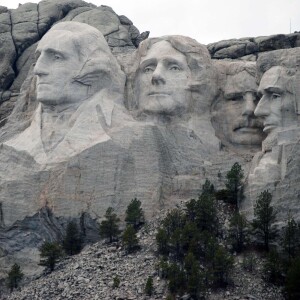
Season 3 Podcast 31 First Amendment and Political Correctness
 2022-02-14
2022-02-14
First Amendment and Political Correctness
The First Amendment states:
"Congress shall make no law respecting an establishment of religibon, or prohibiting the free exercise thereof; or abridging the freedom of speech, or of the press; or the right of the people peaceably to assemble, and to petition the Government for a redress of grievances."
The First Amendment contains six assertions or six laws. Fully written out they would read:
1. Congress shall make no law respecting an establishment of religion.
2. Congress shall make no law prohibiting the free exercise of religion.
3. Congress shall make no law abridging the freedom of speech.
4. Congress shall make no law abridging the freedom of the press.
5. Congress shall make no law abridging the right of the people peaceably to assemble.
6. Congress shall make no law abridging the right of the people to petition the Government for a redress of grievances.
We have three branches of Government. The Executive Branch, the Judicial Branch, and the Legislative Branch.
It is assumed in the amendment that the Executive Branch and the Judicial Branch do not have the power to make laws; therefore, they are not mentioned. That does mean, however, that they cannot enforce any rules that violate the six laws of the First Amendment. Negligence 0f enforcement of the Bill of Rights is a violation of their oath of office which is to protect the Constitution. Both branches are forgetting that and like a tsunami are over leaping their boundaries to carry out their own agenda. The First Amendment specifically targets the Legislative Branch because it is in the power of Congress to make laws.
However, it is not in the power of Congress to make laws that violate the First Amendment. They too, like the other branches of government are egregiously ignoring the boundaries established by our forefathers. They violate the laws of the First Amendment without penalty.
Regarding the important issues of religion, speech, press, assemblies, and petitions, the First Amendment is clear: Congress shall make no law that violates those freedoms. No law means no law. It does not leave room for dissembling. It not only limits Congress in making laws, it also limits the President in what Executive orders he can make and it limits the Supreme Court in how they can interpret the Constitution regarding the issues listed in the First Amendment.
Any action on the part of any of the three branches of government that violates the First Amendment is unconstitutional and should be condemned as such. Congress is the business of making laws and they are bound in perpetuity to abide by the Bill of Rights. This raises some serious questions. Just a few are:
1. Why is Christianity targeted? How was Congress able to make Christianity the enemy of the people. How is it that governments can make laws against saying prayers in schools, wearing crosses, placing crosses on government property, building the Christmas crèche? How can they censor sermons that go against political correctness?
2. How is that government can censor language under the guise of political correctness?
3. How is it that social media can censor conservatives, mute a president, and censor religion but give full unfettered voice to the left.
4. How can Congress make laws for the people but exempt themselves and their favorites from those same laws?
5. How can Congress define riots committed by the left, where murder, burning, occupying buildings and other violent acts are rampant as peaceable assemblies and have zero tolerance for assemblies of the right.
More Episodes
 2021-12-16
2021-12-16
 2021-12-14
2021-12-14
 2021-12-13
2021-12-13
 2021-12-10
2021-12-10
 2021-12-09
2021-12-09
 2021-12-08
2021-12-08
 2021-12-07
2021-12-07
 2021-12-06
2021-12-06
 2021-12-03
2021-12-03
 2021-12-02
2021-12-02
 2021-12-01
2021-12-01
 2021-11-29
2021-11-29
 2021-11-26
2021-11-26
 2021-11-23
2021-11-23
 2021-11-19
2021-11-19
Create your
podcast in
minutes
- Full-featured podcast site
- Unlimited storage and bandwidth
- Comprehensive podcast stats
- Distribute to Apple Podcasts, Spotify, and more
- Make money with your podcast
It is Free
- Privacy Policy
- Cookie Policy
- Terms of Use
- Consent Preferences
- Copyright © 2015-2024 Podbean.com





